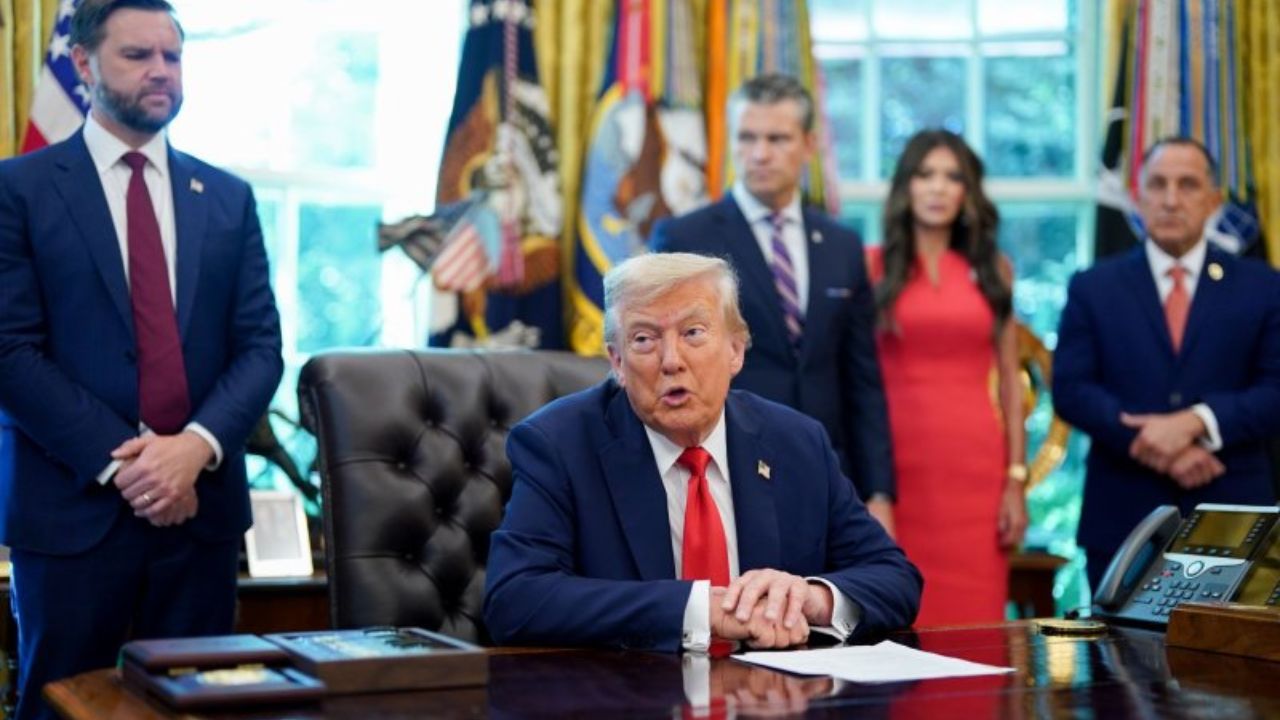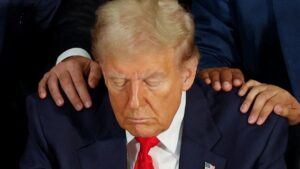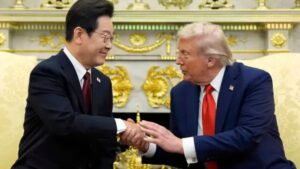Trump’s Tough Stand: The American flag, called the “Stars and Stripes”, is not just a piece of cloth, but is considered a symbol of the identity, pride and history of the United States. It not only represents freedom and democracy, but is also a symbol of national unity for American citizens. However, in the past few years, controversies related to flag insult have divided the entire country. Recently, President Donald Trump has decided to take strict action on this issue, which has sparked a new debate in American politics.
Trump’s executive order: What is its specialty?
President Donald Trump is going to sign an executive order on August 25, 2025, which aims to take strict action against those who insult the American flag. Under this order, all those individuals who insult the flag, whether in the form of burning it or in any other way, will face prosecution. The order makes it clear that insulting the flag will be considered “a symbol of hostility and hatred towards the nation” and it will not be tolerated under any circumstances.
According to this order, the Attorney General has been directed to prosecute all such cases where the flag has been insulted. Also, it has been said that flag insults committed by foreign citizens can result in their visa or immigration benefits being revoked.
Legal Conflict: Constitution vs. New Order
The US Supreme Court had ruled in 1989 in the case “Texas vs. Johnson” that burning the American flag is protected under freedom of expression. This means that burning the flag is considered a type of symbolic speech, which is protected under the First Amendment of the US Constitution. Trump’s new order appears to challenge this decision. The order clearly states that the Attorney General should file lawsuits to “clarify the limits of freedom of expression”.
This indicates that in the coming times, a major legal conflict can be seen in the US on this subject, where the debate of “freedom of expression” vs. “nationalism and patriotism” will intensify.
Recent events: Increasing trend of flag burning
Incidents of flag burning have increased in the US in the last few years. Protesters set the American flag on fire outside the Democratic National Convention held in Chicago in 2024. Similarly, the flag was also burnt in Washington D.C. in 2024, when Israeli Prime Minister Netanyahu addressed the Congress.
During the anti-ICE demonstrations held in Los Angeles in 2025, protesters also burned the flag and even spat on it. Many protesters were seen waving the Mexican flag. These incidents have further deepened the polarization in American society.
Sports world and flag controversy
The issue of respecting the flag in America has also caused controversy in sports. In 2016, NFL quarterback Colin Kaepernick protested by kneeling during the national anthem. In 2020, this movement became more widespread by joining with the Black Lives Matter movement. Many players adopted the method of bowing during the national anthem in protest against police brutality and racial discrimination, which sparked a debate in American society whether it is an insult to patriotism or the use of democratic rights.
Trump’s nationalism agenda
This executive order is part of President Trump’s broader strategy, in which he wants to revive the spirit of patriotism in the country. He recently installed 88-foot-high American flags on both sides of the White House and ordered the State Department to hoist only the American flag in American embassies.
Conclusion: Will this decision unite America or divide it further?
This move by Trump is an attempt to preserve the honor of the American flag, but the question also arises whether this is an attack on freedom of expression? On one hand there is an argument to promote patriotism, while on the other hand there is a danger of curbing personal freedom.
In a democratic country like America, this debate will become more intense about how much strictness is necessary to maintain the honor of the nation and whether this strictness matches the basic spirit of democracy. In the coming times, this issue is going to give a new dimension to the debate of freedom of expression versus nationalism not only in American politics but all over the world.
FAQs
Q1. What is Trump’s new executive order about?
It aims to prosecute individuals who desecrate the American flag, including those who burn it, and impose stricter penalties, especially on foreign nationals.
Q2. Does this order challenge the First Amendment?
Yes, it could lead to legal battles since the Supreme Court previously ruled that flag burning is protected as free speech under the First Amendment.
Q3. Will foreign nationals face consequences for flag desecration?
Yes, the order allows the government to deny or revoke visas and immigration benefits for foreign nationals involved in flag desecration.
Q4. Why is Trump implementing this order now?
The move follows a rise in flag-burning incidents during protests across the U.S., reflecting a broader push by Trump to promote patriotism.
Q5. What happens next?
The order is likely to spark significant legal and political debate, potentially leading to a Supreme Court review of the 1989 ruling protecting flag burning.


